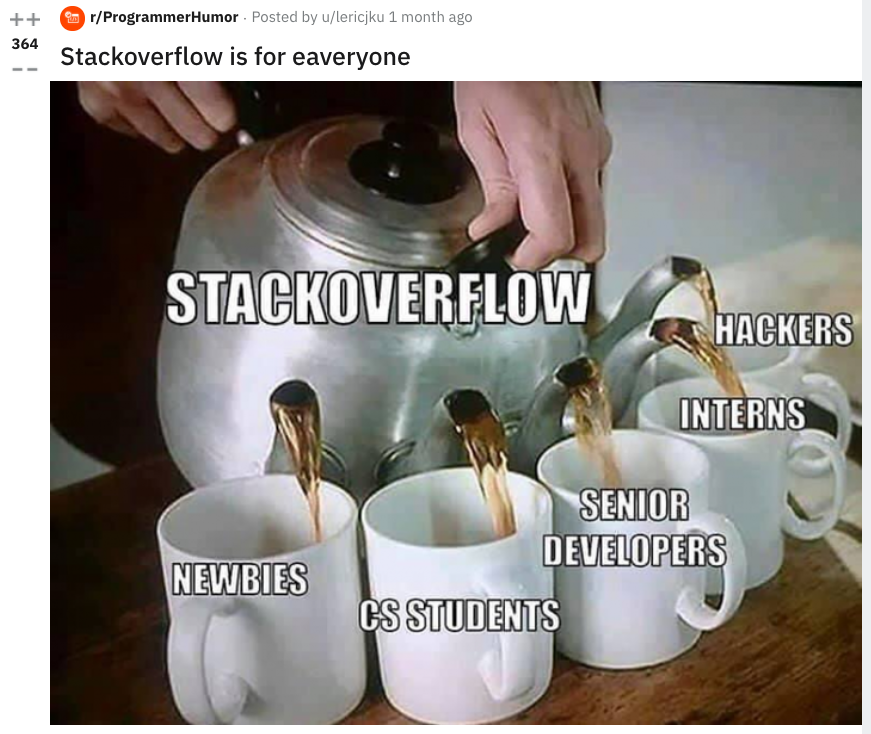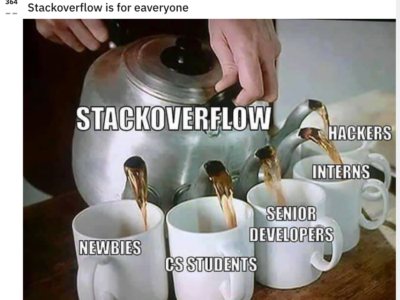Hunt & Peck
I used to work at a university where I was amazed to watch one the of the deans ‘hunt & peck’1 at a keyboard. How did a person who creates documents and reports for a living possibly not know how to type? Since then, I’ve learned that the ‘hunt & peck’ approach is prevalent in all fields of expertise and I’ve started to use it as a metaphor for ineptitude. I’m personally guilty in that it took me years to stop glancing at the keyboard on occasion. Even now, I find myself making errors in the dark if I’m not on a backlit keyboard.
I’ve learned the proficiency is really just a matter of perspective and the perspective I have on my work now pales in comparison to that of just ten years ago. I recently read that over 50% of developer time is spent on technical debt and that it costs some $85 billion annually2. I can attest to the truth in this simply because I spend so many of my working hours fixing legacy software and websites. I sometimes prefer ‘fixing’ over ‘building’ because the results are immediately palpable and the clients get immediate satisfaction. I’ve learned to use techniques to avoid future technical debt. My primary method is simplicity in function and streamlining my workflow.
The video above illustrates a workflow I use when building WordPress websites. I had to retool my front end from Bootstrap to TailwindCSS recently. In the process, I set it up to give me an option for reloading the concatenated production files, syncing all front to back end actions, and dynamically generating triad/quartile color schemes. I customize the Gutenberg native blocks to match the theme exactly in the editor to make it intuitive on the end user. I try to automated and streamline everything I work on in an effort to avoid technical debt. I often get requests to fix WordPress websites because I’ve worked with so many folks on WordPress, it’s so widely used, and because of it’s extensibility. It’s occasionally hacked sites, but mostly due to the technical debt of an array of third party plugins and proprietary code which WordPress has made so easy for users to install. I’ve developed what some may call, a very opinionated approach to best practices. I’ve developed a singular project codebase3 that I use to test, develop, and repair. I use a singular base theme4 to build out new projects on my staging site where I keep all the details5.
I spent many years using the hunt & peck method for typing and web development. I still do on some projects and when I’m learning new things. Although being able to write code without a reference is a time saver, I suppose we all do for the later. There’s a running joke about checking Stack Overflow6 in r/programming humor7. And as much as I’m just trying to make myself look smart here, if you were to examine my search history at any point, you’ll see it’s entirely dominated by Stack Overflow.

Hunt & peck is really just a way of learning. Ever since I raised chickens, I’ve compared their behavior to ours. Although I don’t understand how a person who writes reports for a living doesn’t know how to type, I completely understand how a person who writes code for a living uses Stack Overflow. I’ve always kinda had this sneaking suspicion that the end result of having an unlimited amount of information available at our fingertips would be that we would stop storing some of it. Although I don’t believe voice command or code completion tools will get some of us away from the keyboard in the foreseeable future, I should stop using the hunt & peck as a metaphor for ineptitude and start embracing it as a method of learning.
- Hunt & Peck – https://en.wikipedia.org/wiki/Typing#Hunt_and_peck
- Stripe – The Developer Coefficient – Software engineering efficiency and its $3 trillion impact on global GDP – https://stripe.com/files/reports/the-developer-coefficient.pdf
- Code – WP – https://code.davidawindham.com/david/wp
- Code -DWP – WordPress – https://code.davidawindham.com/david/dwp
- WP Staging – https://wp.davidwindham.com
- Stack Overflow – https://en.wikipedia.org/wiki/Stack_Overflow
- Reddit r/programminghumor – https://www.reddit.com/r/ProgrammerHumor/
